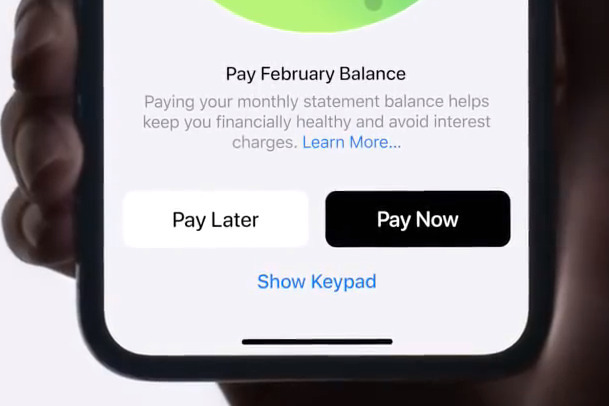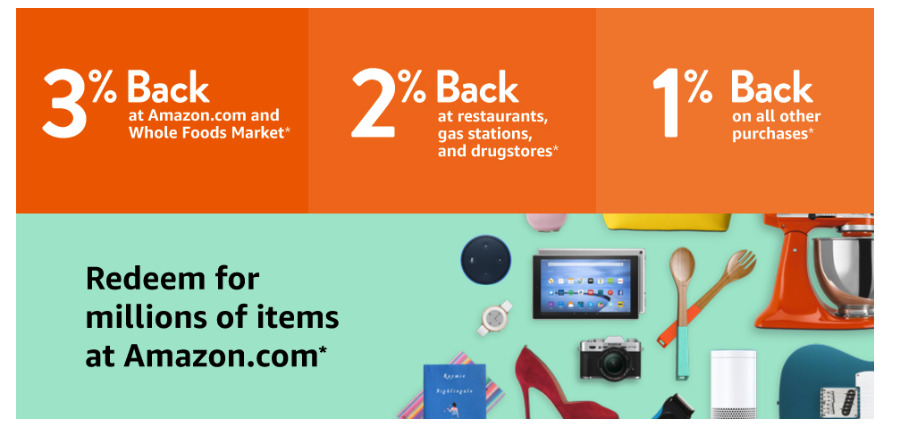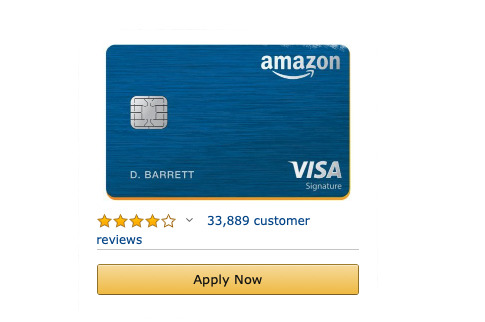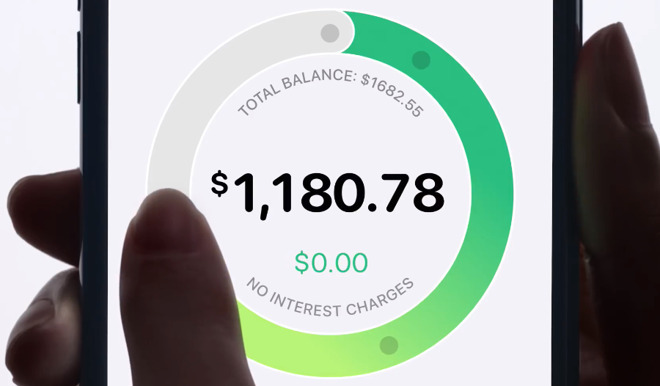Apple is being praised for disrupting the credit card industry with its forthcoming Apple Card, but Amazon is already offering a lot of the same benefits — and you even get a metal credit card from them, too. AppleInsider breaks the two down.
Apple Card is Apple's foray into personal finance, that has no fees and which pays you money every time you use it. You can use it online the instant you're approved, and the physical card you get sent is shiny metal. Maybe the fees and cash side are more important than the metal card, but they're all reasons to like Apple Card — which means you should also like Amazon's equivalents.
We still have a while to wait before Apple Card is released, but you've long been able to get not just one but two different credit cards from Amazon that appear to do the same thing. In practice, there are subtle though significant differences, but Amazon's credit card is a serious contender.
It's sufficiently serious that maybe you shouldn't wait for Apple. And, maybe, you should have applied for Amazon's credit card years ago.
Two cards, both alike
We're going to compare the best of Amazon's two offerings, which is the Amazon Prime Rewards Visa Signature Card. There is, though, also the Amazon Rewards Visa Signature Card and if you just had to squint to see the difference in the name, the differences in what it does are much simpler.
The card we're going to call Amazon Prime Rewards from now on, offers you more money back on each purchase than the non-Prime one. It also requires you to be a member of Amazon Prime, where you don't for the non-Prime card.
Prime target
That requirement for you to have a membership with Amazon Prime is the first difference between this and Apple Card. It also makes a joke of how the Amazon Prime Rewards card insists that it doesn't charge an annual fee.
Strictly speaking, Chase Bank, which provides the service, doesn't ask you for an annual fee, but since you can't have a card without paying Amazon your $119 per year, you are being charged one.
It's just that it may very well be worth it. Amazon Prime offers other benefits, ranging from free or expedited shipping on items you buy, to a video streaming service. If you like the shows on that service or if you buy enough items from Amazon, that Prime membership could be a bargain.
Amazon would like you to see it as a steal, too, because if you qualify for its card, the company immediately gives you a $70 credit. If Amazon Prime is worth it at $119, it's got to be fantastic value at the equivalent of $49.
Except this credit is a signup bonus, you only get it at the start. For next year and every year after, you'll be paying the full $119 every time.
In comparison, Apple Card doesn't give you any bonus on signing up, but it also never charges you an annual fee just for having it.
That said, an Apple Card is a bit useless to you without at least an iPhone. So you could argue that the up-front cost of Apple Card is a lot more than Amazon's.
Cash back
Both Apple Card and Amazon Prime Rewards offer you money back whenever you buy something through it. Any amount of cash back is good, but Apple's offering ranges from a mere 1% to 3% depending on where you are buying whatever it is.
In practice, you're most likely to get 2% because that's the amount when you buy anything, from anywhere, using Apple Pay. If you buy it from Apple, that's when you get the 3% return.
Amazon has the same 1% when you buy just about anything, anywhere, using it. Then it offers 2% across common outlets such as drug stores and gas stations. If you are buying anything on Amazon or through its subsidiary Whole Foods Market (not including international stores), then you get 5%.
You don't have to count on your fingers to know that Amazon's top 5% is more than Apple's top 3%, but seeing the difference in cold cash is much more vivid.
Say you bought a 40mm Apple Watch Series 4 with cellular connection. If you get it from Apple, that retails for $499 and with the cash back, it's ultimately costing you just $484.03.
That's not bad at all, and now there's no way you'd buy a $10,000 iMac Pro any other way.
Except that on Amazon, that same Apple Watch Series 4 is currently selling for $449.99 with coupon. That's already a savings, but throw in that you're going to get a 5% bonus, and now you're saving $22.50. You're spending a total of $436.49, or forty-seven bucks less for the same Watch.
When you see it
Amazon's clearly the better offer for cash back, but there is the question of when you actually get the money and that's more complicated. The short version is that with Amazon, you'll see your cash in your account at the end of the month. With Apple, you see it every day.
Only, when you go to buy something on Amazon and you're using its card, you will be offered a discount right away. At checkout time, you can choose to reduce the price by using this cashback figure. All credit card experts say no, though, don't do it. Pay the full price and let your cashback accrue through the month.
There's also the fact that Amazon does this through a points system where about 1 cent equals 1 point. It doesn't appear to change, so it isn't that you have to figure out in your head what the points mean, but Apple's got this right. With Apple, there's no messing around with points, there is just the cash in dollars and cents.
Simplicity really counts
Apple can't touch Amazon for that cashback amount, not when it's 5% and when it applies to everything you buy through the service. Yet it can compare on simplicity and giving you control of your finances. If that sounds like a small thing, still it's really what will make Apple Card disrupt the industry.
With Apple Card, you'll see every transaction in all the detail you need, without any delay. With Apple Card you can see the difference to you in dollars if you pay off the entire balance each month or you don't.
There are other differences between the services — ranging from details about late fees and when interest is charged on which amount — but they don't change the headlines.
Apple Card is good card with pretty good cashback rewards and exceptional tools for managing your money. Amazon Prime Rewards currently comes with significantly better cash rewards and if you're already a Prime member, no downsides.
There is one big question over the Purchase APR of these two cards. Apple has been criticised for saying it offers great, low rates when its card's APR will be from 13.24% to 24.24%, depending on your credit worthiness. However, Amazon's ranges from 16.49% to 24.49%.
The very best way to use a credit card, regardless of who it's from, is to pay off your entire balance every month. If you do that, if you are on top of your spending, and if you buy a lot through Amazon, then Amazon's card is the better value.
Keep up with AppleInsider by downloading the AppleInsider app for iOS, and follow us on YouTube, Twitter @appleinsider and Facebook for live, late-breaking coverage. You can also check out our official Instagram account for exclusive photos.
 William Gallagher
William Gallagher










-m.jpg)






 Chip Loder
Chip Loder
 Wesley Hilliard
Wesley Hilliard
 Marko Zivkovic
Marko Zivkovic

 Christine McKee
Christine McKee
 Amber Neely
Amber Neely

 Malcolm Owen
Malcolm Owen








41 Comments
Maybe I’m wrong here, but I see this tie-up with Goldman Sachs and Visa the first step for Apple. There’s no reason they can’t learn this business inside and out and eventually have their own secure network to compete against the VisaNet and there’s no reason they couldn’t offer the financial services of Goldman Sachs.
One very important topic that this otherwise excellent article does not touch on is "international transaction fees." There are a good number of us Americans who reside outside the USA but who still have bank accounts in the US and we of course want credit cards that tie into those US accounts. It behoves us to consider credit cards which we can use both in the USA and abroad without getting hit with silly foreign transaction fees.
Having research many, many cards, I find that the Apple Card is pretty much the only one that offers NO FOREIGN TRANSACTION FEES while also offering us the card itself with no annual fees. Many cards, like certain AMEX cards, also offer no foreign transaction fees but only if you pay a hefty annual fee. For that reason, I cannot give an immediate nod to Reward Cards over the Apple Card because the key consideration for me is the no foreign transaction fee part. For truly, if a rewards card gives me slightly more rewards than the Apple card, and yet that rewards card charges me foreign transaction fees, there's no merit to the rewards card.
Less than 5% of the world's population is eligible for Amazon's card, as we aren't US citizens with a US SSN and US credit rating. This is the kind of article that AI should flag as being relevant to US citizens only. Or maybe AI doesn't really want international readers to be reading the AI site?